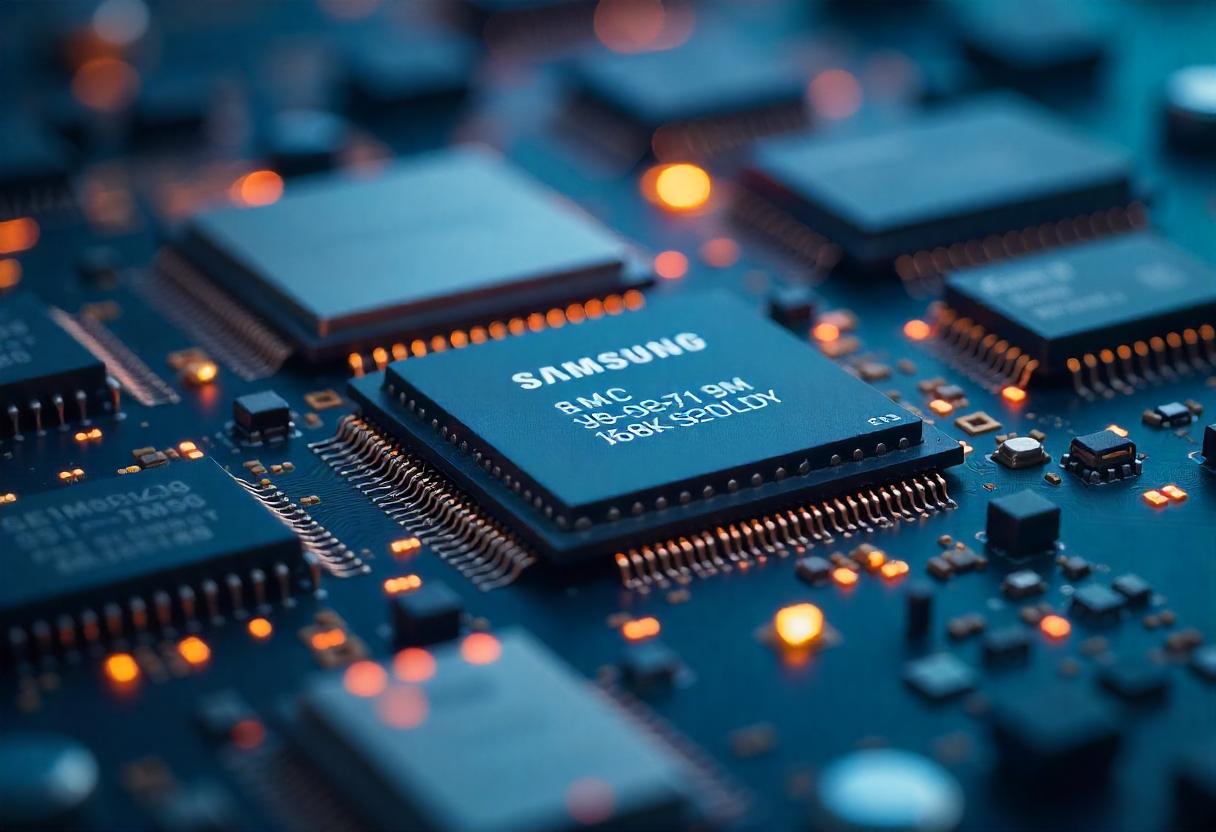 INFRA
INFRA
 INFRA
INFRA
 INFRA
INFRA
Samsung Electronics said today that it’s likely to miss expectations on fourth-quarter profit by a wide margin, as analysts blamed the miss on the poor performance of its high-end memory chips for artificial intelligence accelerators.
In its preliminary earnings forecast, Samsung said its fiscal 2024 fourth-quarter operating is likely to double from a year earlier, yet still fall short of expectations. Analysts said that’s because the company is struggling to compete with its rival SK Hynix Inc. in terms of being able to supply high-end memory chips to customers such as Nvidia Corp.
The company’s profit was dented by rising costs related to research and development and the expansion of its manufacturing capacity for more advanced memory chips. In addition, it has been hit by lower demand for more conventional memory chips used in personal computers and smartphones.
Samsung, which is the world’s largest manufacturer of memory chips, smartphones and televisions, said it anticipates a fourth-quarter operating profit of 6.5 trillion won ($4.47 billion), far below the 7.7 trillion won forecast. Though that number represents a 131% jump from the year-ago period, it’s down 29% on a sequential basis from the third quarter of fiscal 2024.
Three months ago, the company made a rare apology to investors for its third-quarter performance, though it has so far not done so again, despite the latest results appearing to be even worse.
Samsung said in its third-quarter earnings report that it was making progress in its efforts to supply high-bandwidth memory chips to Nvidia, but it has not provided any updates since the. The ongoing delay appears to have put a big dent in its earnings, analysts told Reuters.
On Tuesday, Nvidia Chief Executive Jensen Huang told the Korea JoongAng Daily that Samsung must “engineer a new design” if it wants to sell HBM chips to his company. He added that “they can do it, and they are working very fast.” However, Hyundai Motor Securities analyst Greg Noh told Reuters that it will likely be “some time” before Samsung can do it.
Samsung’s stock fell 1% in early trading in South Korea on Wednesday, but rebounded to show a 1% gain later.
Lee Min-hee, an analyst at BNK Investment & Securities, said the quick rebound in Samsung’s stock price likely stems from the fact that investors already knew the company’s fourth quarter performance would disappoint.
“There are concerns about Samsung’s major businesses continuing to lose competitiveness,” he added. “But chip demand may have bottomed already, and smartphone demand in China may soon improve.”
Constellation Research Inc. analyst Holger Mueller told SiliconANGLE that Samsung currently faces two challenges. On the product side, it’s struggling with lower demand in the traditional memory chip and smartphone markets, and it’s also suffering from a lack of innovation, which means it has been unable to crack the market for high-end memory chips, he said.
“On the management side, Samsung’s executives are struggling to grapple with investor’s inflated expectations in both markets,” he added. “This is a tough challenge because investors currently have high hopes for success in those markets, but Samsung has no choice but to do this to avoid getting punished when those investors are disappointed.”
Samsung’s shares fell 32% in 2024, lagging behind the average 10% decline in semiconductor stocks.
One of Samsung’s main rivals in the memory chip business, Micron Technology Inc., last month offered a quarterly revenue and profit forecast that came in well below analyst estimates, sending its stock lower. On the other hand, SK Hynix, which is the world’s second-largest memory chip manufacturer, appears to be taking full advantage of its rivals’ troubles, with analysts forecasting that it will post a record profit when it reports its fourth-quarter earnings later this month.
Samsung hasn’t been helped by the sluggish demand for legacy memory chips, especially in the smartphone sector, which has led to lower utilization rates at its factories. This represents Samsung’s core business, and analysts believe it will continue to rack up losses while it struggles to increase production yields to compensate.
The company will release its fourth-quarter results, including a detailed breakdown of its earnings for each of its major businesses, at the end of the month.
Support our mission to keep content open and free by engaging with theCUBE community. Join theCUBE’s Alumni Trust Network, where technology leaders connect, share intelligence and create opportunities.
Founded by tech visionaries John Furrier and Dave Vellante, SiliconANGLE Media has built a dynamic ecosystem of industry-leading digital media brands that reach 15+ million elite tech professionals. Our new proprietary theCUBE AI Video Cloud is breaking ground in audience interaction, leveraging theCUBEai.com neural network to help technology companies make data-driven decisions and stay at the forefront of industry conversations.